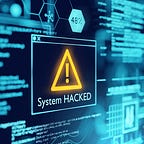Cyber Hygiene: Best Practices for Online Safety
The importance of maintaining robust cybersecurity hygiene cannot be overstated. From our personal data to sensitive corporate information, everything online is faced with a barrage of cyber threats every day. As technology advances, so do the methods employed by cyber criminals, and they’re constantly coming up with new ways to steal our data. In this blog, I’ll explore some best practices for online safety, and explain why individuals and organisations alike should consider the revolutionary benefits of quantum encryption.
The Cyber Landscape: Evolving Threats
The digital landscape is constantly changing, and with technological advancements being made all the time, cyber threats continue to evolve. Traditional security measures, while effective to a certain extent, are no longer sufficient to safeguard against the most sophisticated cyber attacks. Today, a proactive approach is essential to ensure the integrity and confidentiality of our digital assets.
Cyber Hygiene Essentials
Strong Passwords and Multi-Factor Authentication (MFA): The foundation of cybersecurity hygiene lies in the strength of our passwords. ‘Password’ isn’t enough any more — individuals and organisations alike should be using complex, unique passwords for every different account. Implementing MFA also adds an extra layer of security, significantly reducing the risk of unauthorised users from accessing your network.
Regular Software Updates: Cyber criminals will often exploit vulnerabilities in outdated software. You should be regularly updating all of your operating systems, applications, and security software — this is a simple yet effective way to mitigate the potential risks of data breaches.
Phishing Awareness Training: Phishing attacks remain a prevalent threat. Educate yourself — or educate your employees and customers — about the dangers of clicking on suspicious links or providing sensitive information to unknown sources. Regular training sessions can enhance your ability to recognise and avoid phishing attempts.
Data Backups: In the event of a cyber attack or data loss, having regular backups is crucial. Consider regularly backing up your data to ensure it’s easily recoverable if the worst ever happens.
The Role of Quantum Encryption
While the practices mentioned above form the backbone of cyber hygiene, the emergence of quantum computing in recent years has introduced a huge shift in the world of cybersecurity. Quantum computers, with their unprecedented processing power, have the potential to easily break existing encryption algorithms. This looming threat means that quantum encryption is the next frontier when it comes to securing our digital assets.
Understanding Quantum Encryption
Quantum encryption uses quantum mechanics to secure communication channels. Unlike classical encryption, which relies on complex mathematical algorithms, quantum encryption utilises the inherent properties of quantum particles to transmit information securely.
QKD, or quantum key distribution, is a cornerstone of quantum encryption. It enables the secure exchange of cryptographic keys between parties, with the unique feature of detecting any attempt to intercept the keys. This ensures that communication remains confidential and free from eavesdropping. Companies like Arqit have already developed their own quantum-safe encryption solutions that use symmetric cryptographic keys. As quantum computers pose a threat to current cryptographic algorithms, the development of post-quantum cryptography is also underway. These algorithms are designed to withstand the computational power of quantum machines, and offer us a more robust defence against potential attacks — even attacks coming from quantum computers.
Why Quantum Encryption Matters
Future-Proof Security: Quantum encryption provides a level of security that’s theoretically immune to quantum attacks. By adopting quantum-safe cryptographic algorithms, we can begin to future-proof our most sensitive data against advancements in quantum computing.
Global Interconnectedness: As the world becomes increasingly interconnected, securing international communications is paramount. Quantum encryption offers a new era of secure global communication, reducing the risks associated with traditional encryption methods.
Regulatory Compliance: As data protection regulations become more stringent, compliance with security standards is non-negotiable. Quantum encryption will ensure that organisations meet the necessary security requirements.
Embracing the Quantum Future
When it comes to protecting our data, the importance of cyber hygiene cannot be overstated. While traditional best practices are still important, the advent of quantum computing demands a more forward-thinking approach to cybersecurity. Quantum encryption offers us unparalleled security in the face of emerging powerful threats, paving the way for a more secure future.
